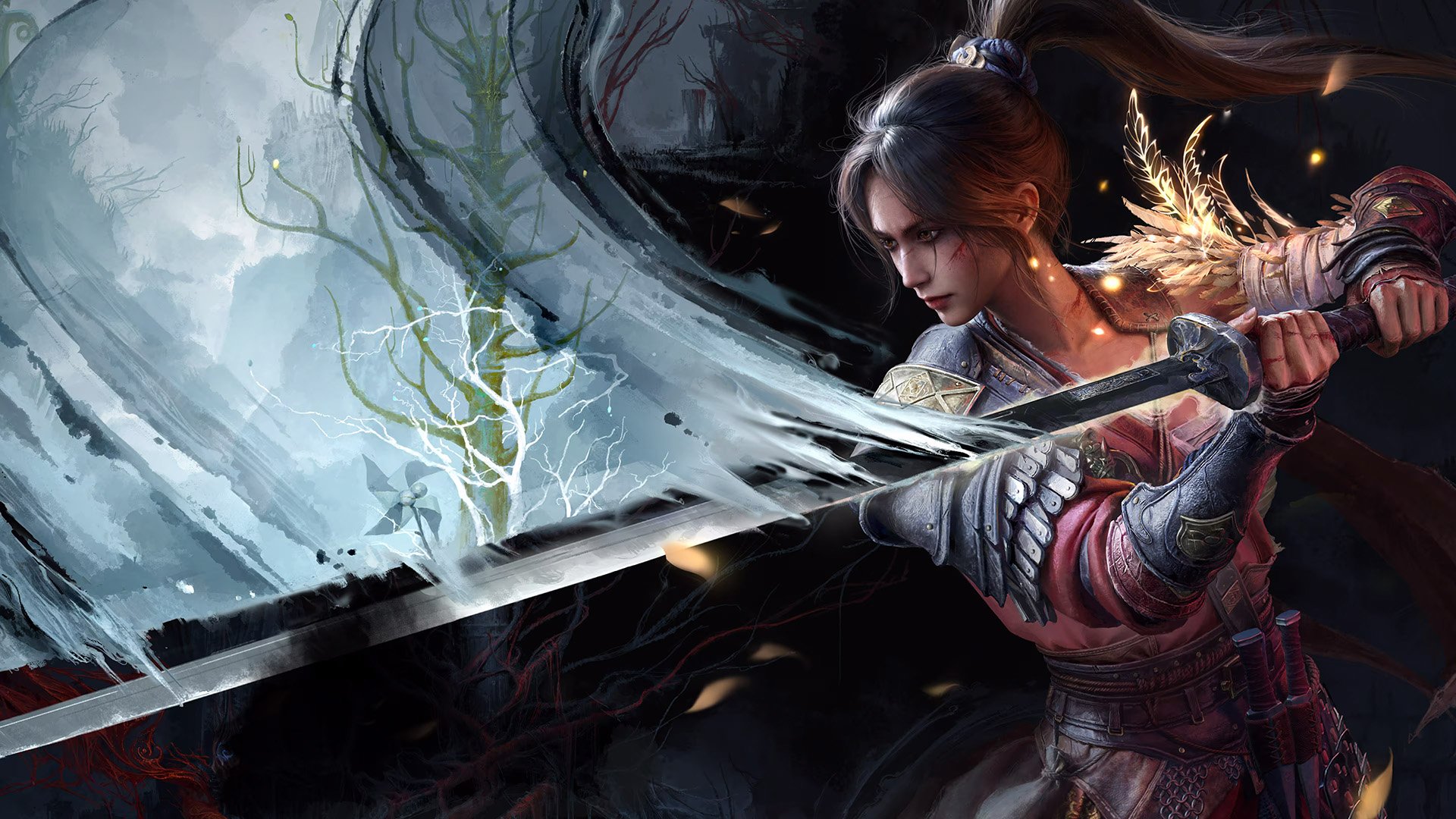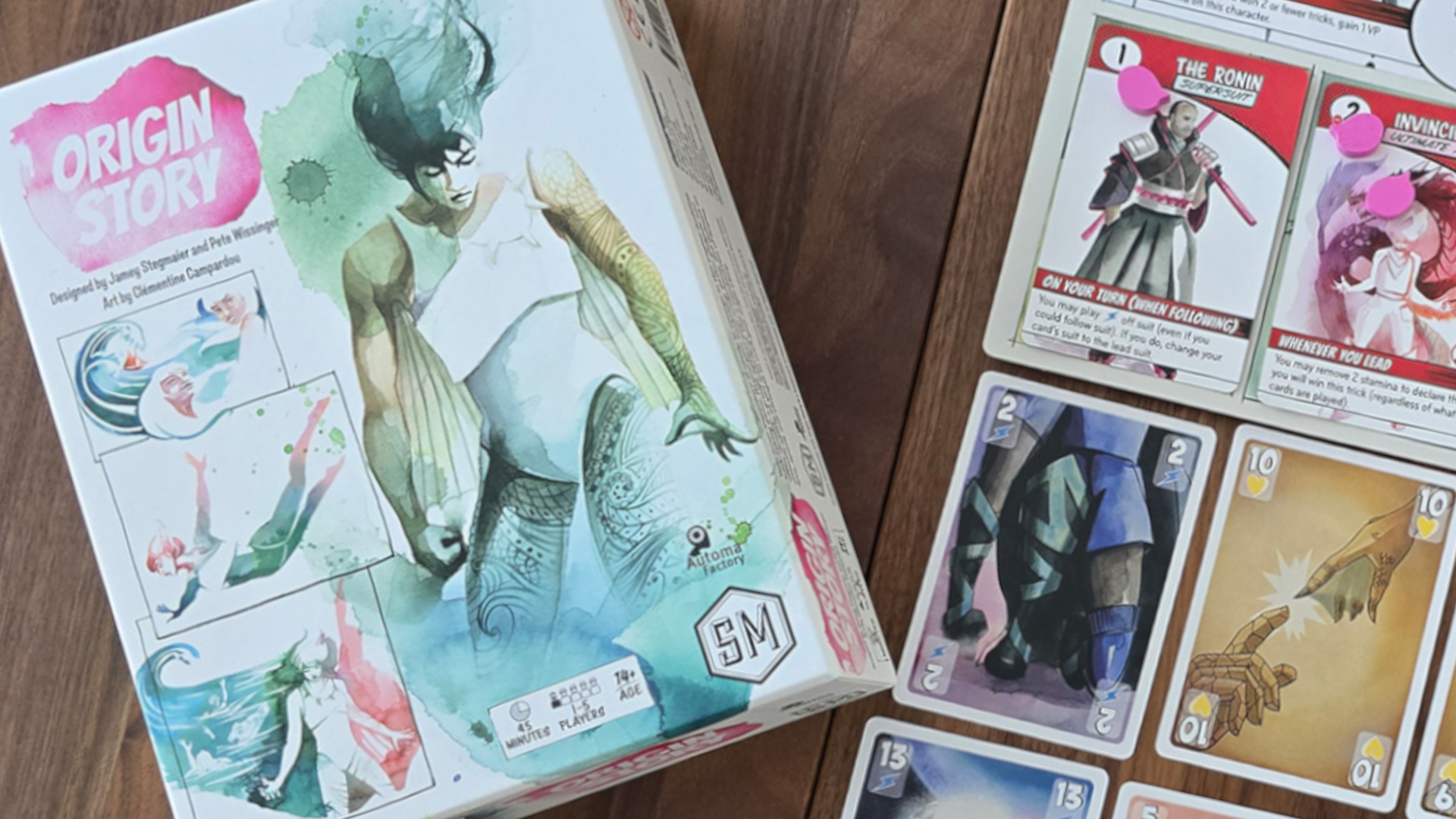GamesRadar+ Verdict
Wuchang: Fallen Feathers is a solid soulslike game with some unique systems that sets it apart from its contemporaries. Combat is flashy and fun, but it's bundled with some frustrating boss and movement mechanics. Still, a stunning world and excellent dungeon exploration make Wuchang: Fallen Feathers worth trying.
Pros
- +
Great combat variety through different weapons and spells
- +
Visually stunning world with rewarding dungeon crawling and exploration
- +
Flexible and straightforward customization
Cons
- -
Bosses rarely flinch, making flashy combos difficult to pull off
- -
Story isn't the most engaging
- -
Uneven difficulty spikes
Why you can trust GamesRadar+
In soulslike games, when you get knocked down, you keep getting up and trying again. That's why the sub-genre continues to flourish to this day. The cycle of repeatedly dying while slowly learning a boss's attack patterns eventually leads to a stunning and fulfilling victory when it's defeated. In Wuchang: Fallen Feathers, however, sometimes you stay down because you can't get up in time.
Though my own attacks barely cause bosses to flinch, many are otherwise able to quite easily stunlock me, knocking me down to the ground where I slowly, laboriously try to rise – giving just enough time for it to charge up another attack to kill me before I can even regain control, let alone my composure.
These were some of the problems I had with the game's otherwise extravagant combat. But like any other soulslike, I persevered and learned how to adjust to its mechanics to overcome its spectacular boss fights. It also helps that the journey in between these fights feels worthwhile, with dungeons filled with hidden paths and rewards, as well as sightseeing the breathtaking recreations of ancient China's landscapes.
Dynasty warriors
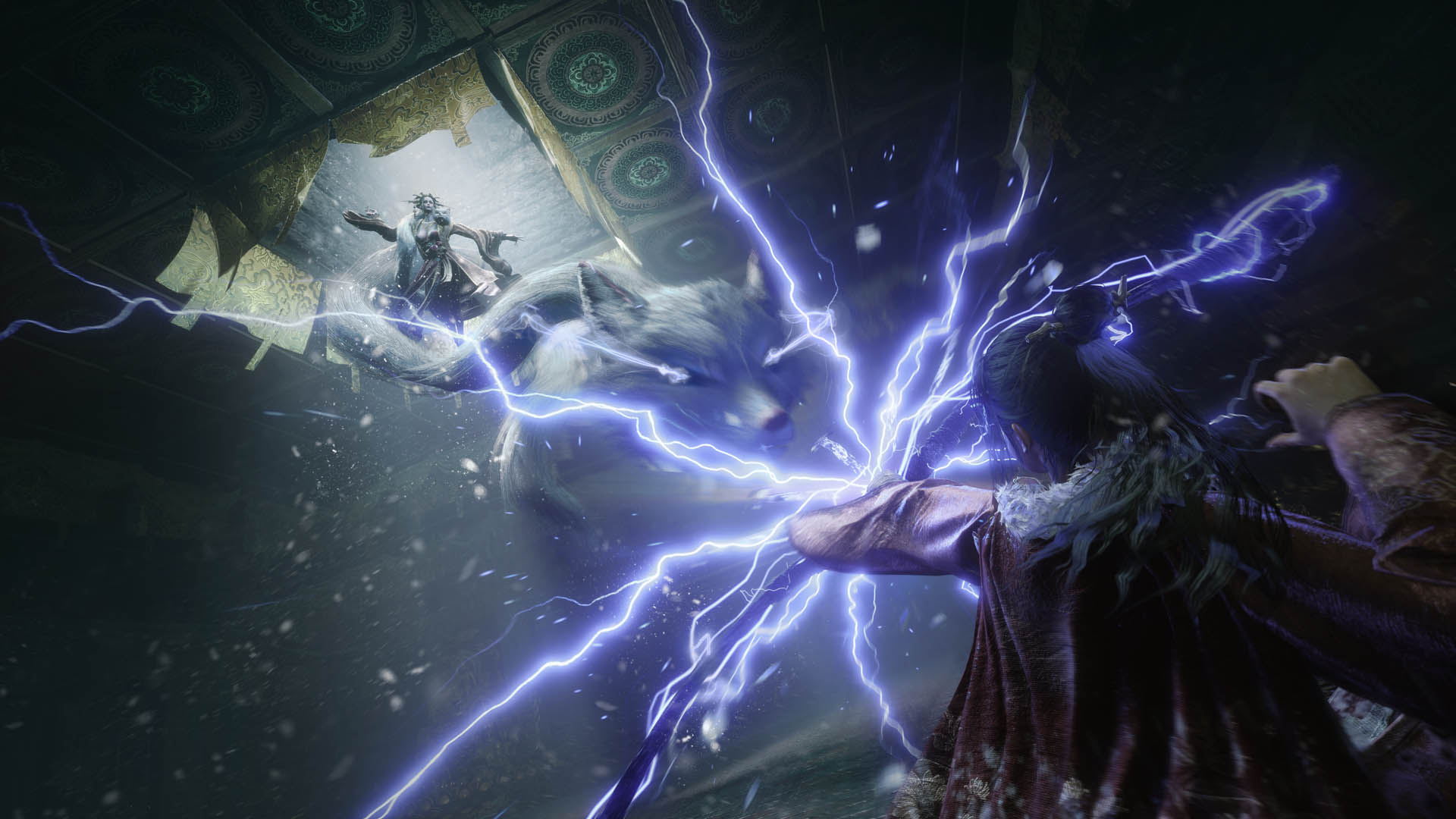
Developer: Leenzee
Publisher: 505 Games
Platform(s): PC, PS5, Xbox Series X/S
Release date: July 24, 2025
Wuchang: Fallen Feathers follows a young woman named Bai Wuchang, who's infected by the Feathering Disease. This sickness drives its victims mad, but Wuchang is somehow more resistant to its effects, and sets out on a journey to uncover the secrets of the malady. It's set during the late Ming dynasty, with various Chinese historical figures featured in the story as NPCs.
Despite the intriguing premise, Wuchang: Fallen Feathers' cryptic story is hard to follow. This issue is exacerbated by the fact that NPCs show up at random locations during your journey and spout background information about the bosses and enemies you've faced so far. While flavor text is appreciated, the NPCs appear so sporadically that I'll usually forget what I had learned beforehand from another one several hours earlier. This makes it hard to piece together a coherent story, and all too easy to just stop paying attention.
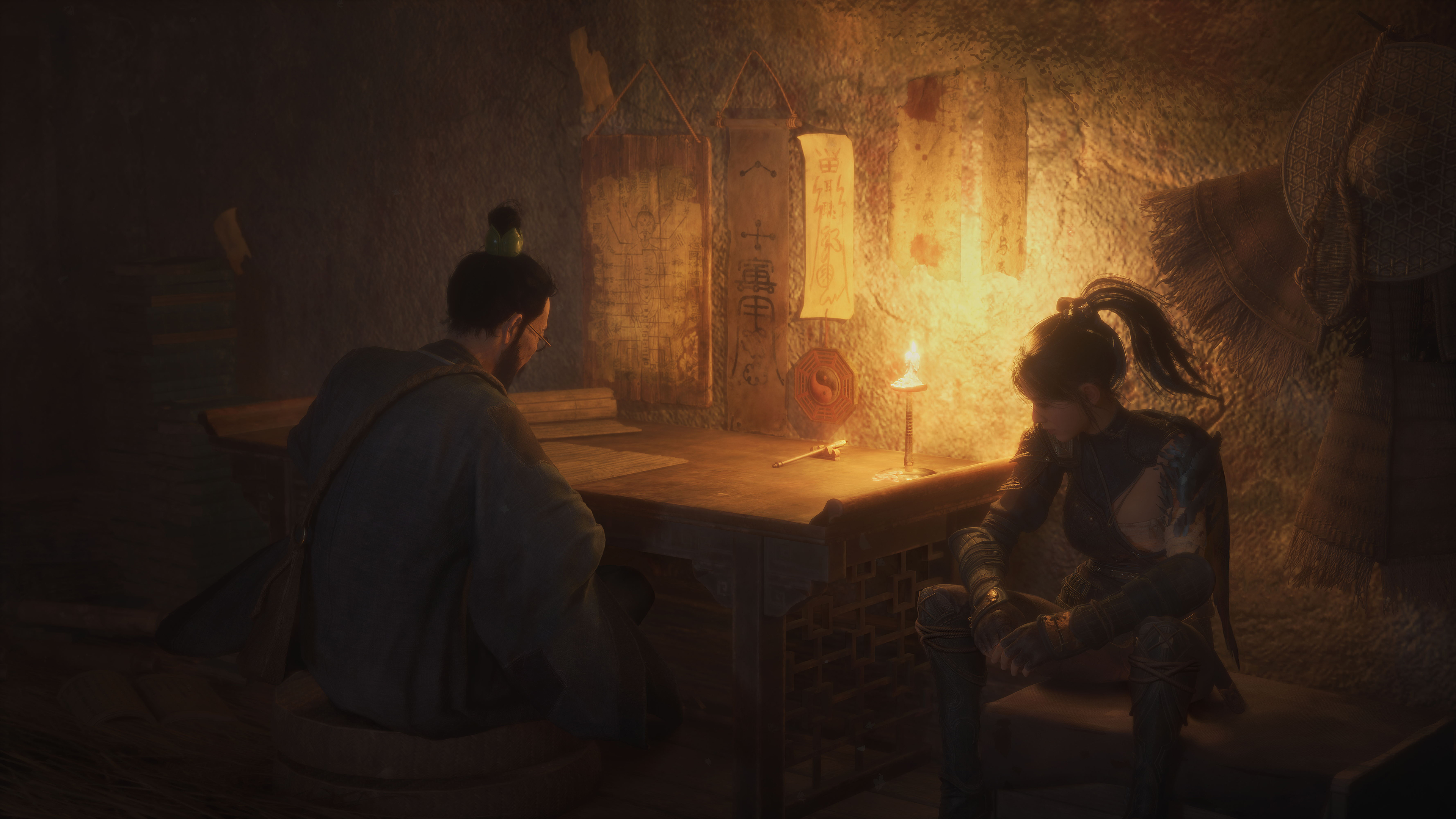
Still, I don't really go into soulslikes for the story, and Wuchang is no different. This is more of a vibe session about persevering through magnificent scenery. The environments are absolutely stunning, with dense forests, elaborate temples, and bright tundras. As someone who's also Chinese, they evoke feelings of familiarity, as I've seen ancient artwork depicting these environments in paintings hung around my childhood home. Since developer Leenzee Games is a studio based in China, I can feel that they crafted the settings with meticulous authenticity.
There's also substance to back up the style too. Exploration is incredibly fun and rewarding with divergent paths to find handy items and powers at the end. More often than not, I'd find consumable Red Mercury (this game's version of Souls/Runes) or a small healing item like Steamed Buns that would help me on my journey to the next save point. It never felt like I picked up a useless item. The extra consumable Mercury I had on hand was always just enough to push towards acquiring a new level up, and using the smaller healing items let me conserve my health flasks for when I needed them the most. Finding secrets and shortcuts to your previous save points is gratifying too.
Weekly digests, tales from the communities you love, and more
Wuxia arts
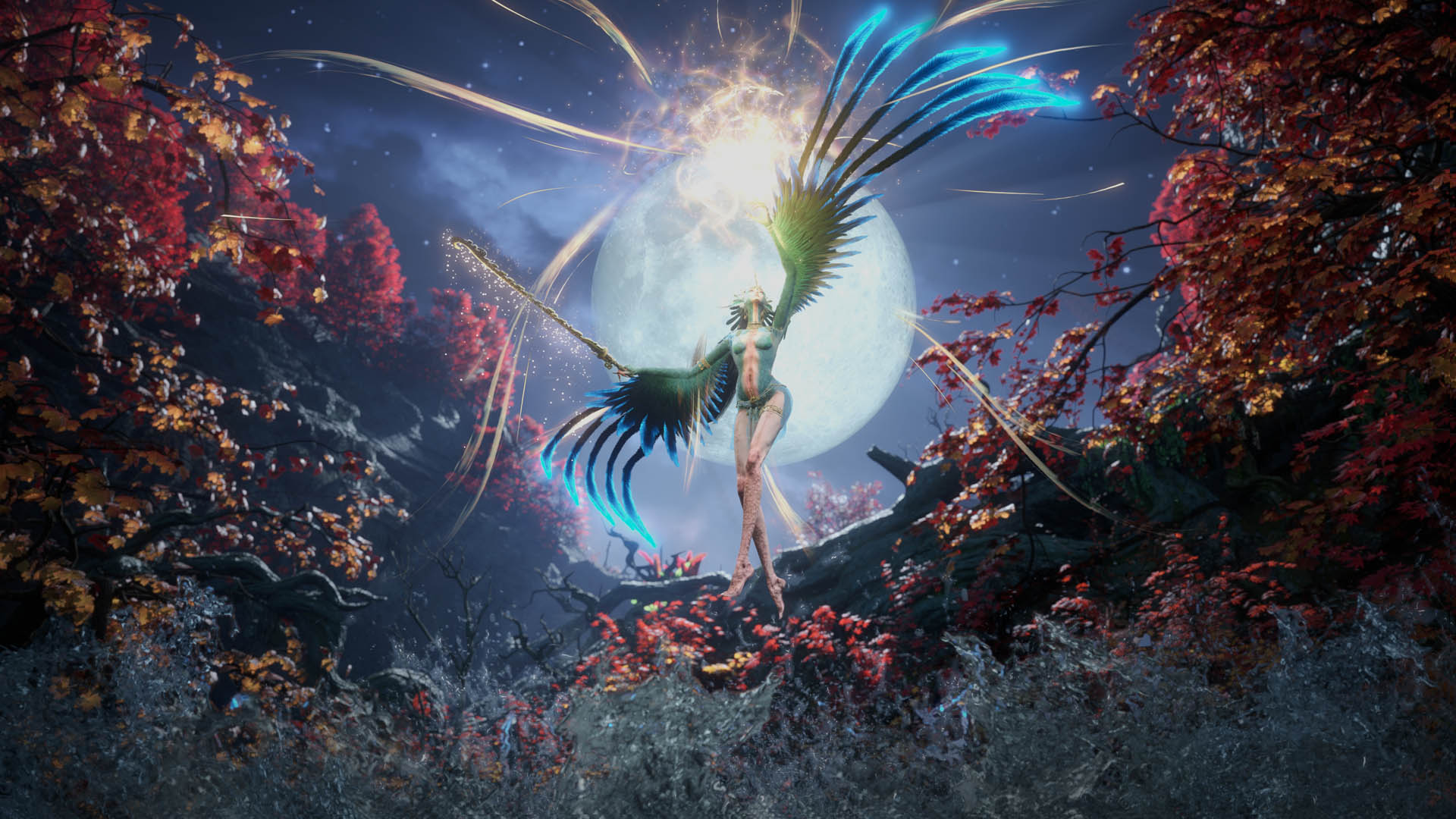
Wuchang: Fallen Feathers' mechanics are where most players will either be turned away or fully embraced. Combat revolves around pulling off flashy skills and chaining attacks, making it a blast to play if you're skilled enough to execute your combos. Similarly to Black Myth: Wukong, your primary defensive tactic is dodging. By timing your evasion correctly, you're rewarded with a single stack of Skyborn Might, which powers up your skills and spells, making them more potent and do more damage when consumed.
Enemies are incredibly difficult to stagger and this ends up usually ruining your combo potential.
Not only are you rewarded for playing well defensively, but it also encourages you to stay on the offensive. It's a balancing act that prevents combat from encouraging turtling up or attacking non-stop. At least, that should be the case in theory.
Reality is a bit different. Enemies are incredibly difficult to stagger and this ends up usually ruining your combo potential since you can be hit out of it. And this issue is more pronounced during boss fights. I find that many bosses don't provide enough openings for you to punish them after successfully avoiding their combos. After doing so, I'd go in and begin to execute my own combo, but since bosses are difficult to stagger, my chain of strikes gets interrupted. As a result, I'm constantly on my backfoot and playing a more defensive game, waiting for the best time to strike.
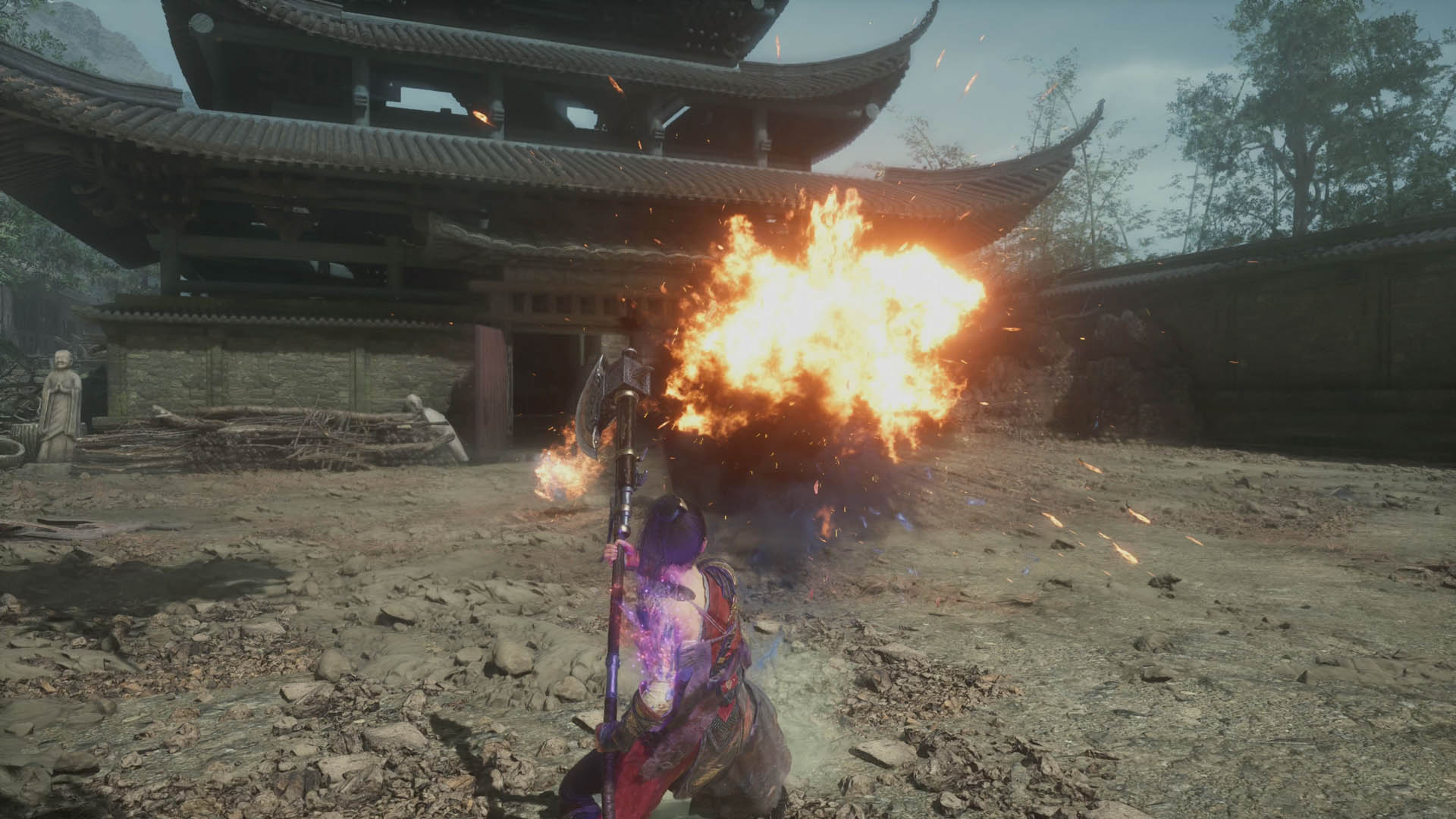
Soulslike games are known for encouraging you to learn the attack patterns of bosses in order to best them, but that's even more so with Wuchang: Fallen Feathers. A go-to strategy of mine was wielding my longsword with its Blink Kick skill. When I'd find an opening, I'd close in and deliver a devastating kick that usually staggers, then I'd back away and repeat it over and over again. If I couldn't get multiple small hits in without being able to stagger the enemy, I figured I just get one large strike in and retreat to safety.
It also takes forever to recover when knocked down. In similar games like Nioh or Elden Ring, you can usually dodge roll in a different direction if you're toppled over, allowing you to bounce back rather quickly. But Bai Wuchang has little to no invincibility frames during her long animation getting back up. This almost guarantees that the boss will connect with a follow-up attack, knocking you over once again, and most likely killing you. It's demoralizing and makes fights more annoying than they should be.
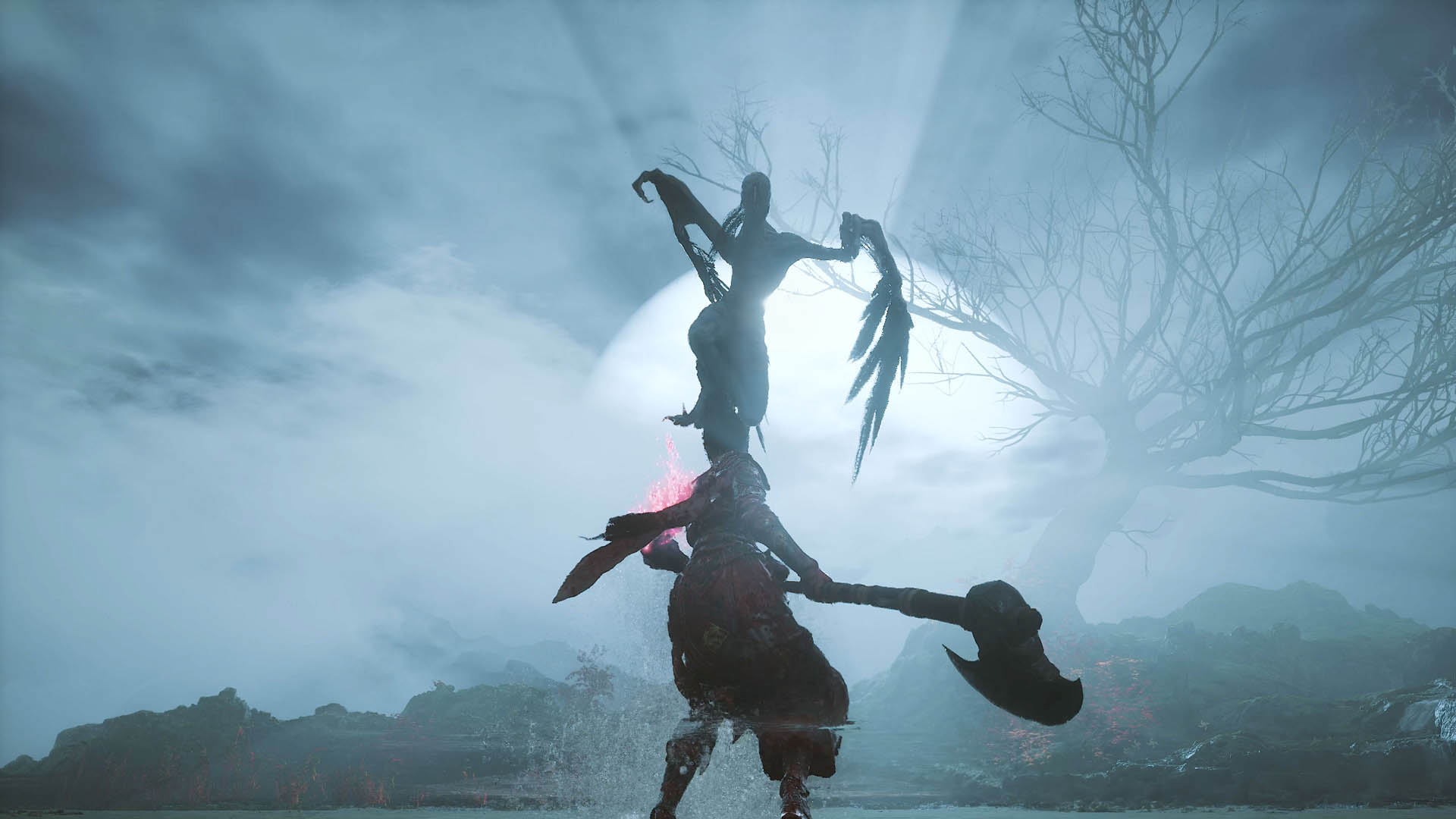
Despite that, boss fights are also strangely easy with a few difficulty spikes every once and a while. By easy, I mean that boss attacks are predictably choreographed and don't have as much area-wide coverage as I expected from other soulslikes. This makes them easy to dodge and avoid damage. The main reason I'd often lose is because I'd get too greedy about getting a last hit in before the boss attacks.
Another design decision I've noticed with Wuchang: Fallen Feathers and its bosses is the relative lack of surprise second phase fights. In most other soulslikes, there's a decent number of boss fights where after you've taken down their first form, a cutscene plays and now you're fighting their second form. It can be incredibly discouraging to find out that the first phase you've had so much trouble winning against and running through all of your healing flasks was only just the first half of the fight. This was an issue that plagued Khazan: The First Berserker earlier this year.
While there are some boss fights in Wuchang that have two phases, they're nowhere as common here and I really appreciate it for doing that. When two-phase bosses are overused, it lessens their impact and makes them feel cheap. Wuchang only pulls them out a handful of times, making those particular boss fights feel much more rewarding than usual when you finally overcome them.
Custom Wuchang
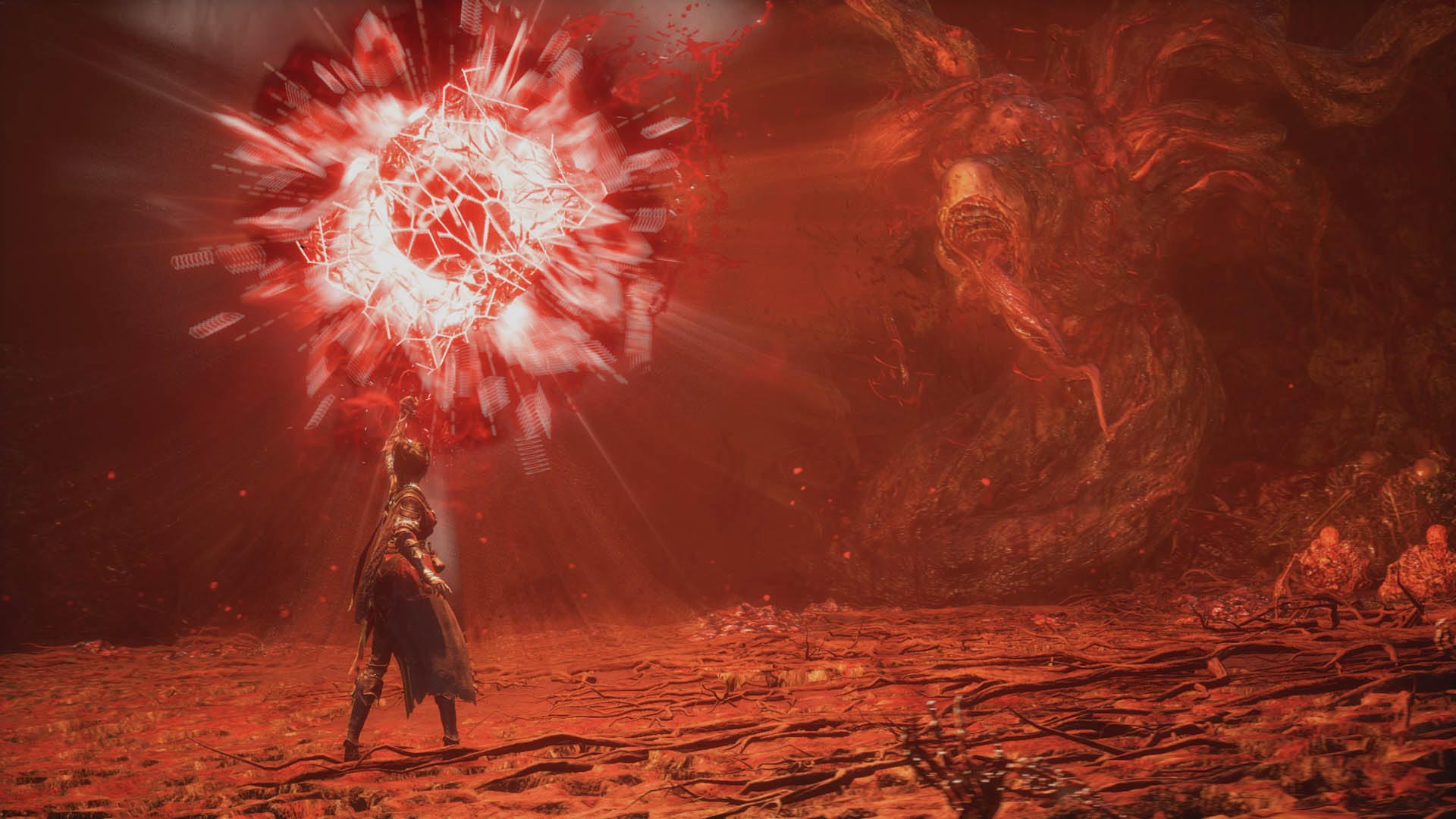
You're encouraged to experiment with the different weapon types.
Wuchang's customization and skill tree options are plentiful and feel unique compared to most soulslikes. It's reminiscent of the Sphere Grid from Final Fantasy 10 and it's intuitive to use. There are five different kinds of weapon types: axes, spears, dual blades, one-handed swords, and longswords. Instead of a dedicated universal block or parrying mechanic, each weapon has its own unique defensive skill, which makes them act sort of like traditional RPG classes.
For example, the spear has the Aerial Bulwark skill. When timed right as an enemy hits you, you'll evade and launch a counter. The dual blade is perfect against enemies and bosses who wield blades, as it can clash with their weapons and cancel out their incoming attacks. If you're looking for a traditional block mechanic, then the axe has that. So based on how you typically play soulslikes, you might opt for a certain weapon type. It's an interesting take on the usual block and parry mechanics found in the genre. It takes a while to get used to, but that way you're encouraged to experiment with the different weapon types.
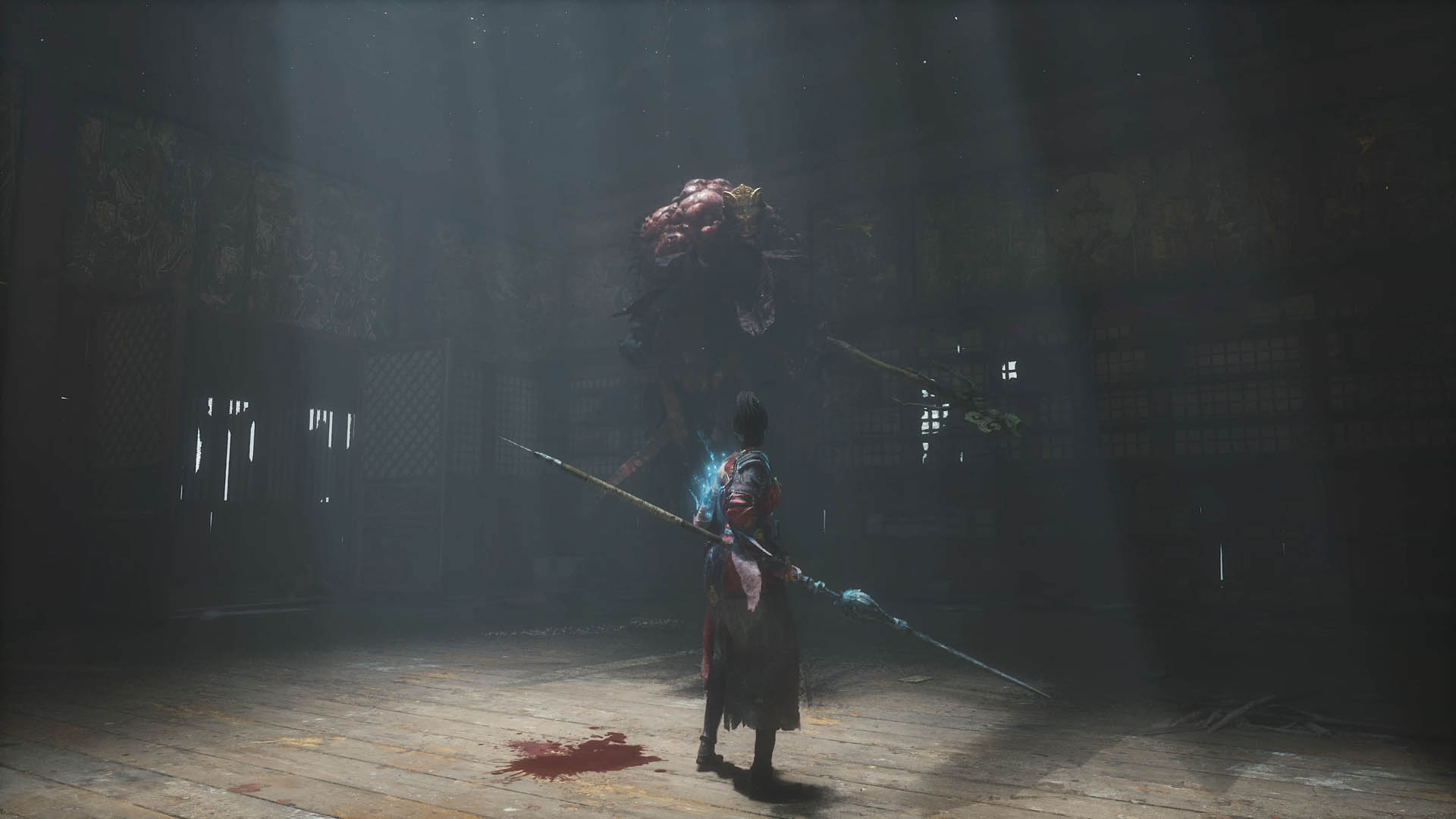
This is further supported by the fact that you can respec your skill tree at any time entirely for free. That freedom is paramount and takes away the worry of whether you invested in the wrong build. Additionally, Wuchang's combat utilizes Swift Draw, where if you have two weapons equipped you can consume one Skyborn Might to unleash a special brutal swap attack as you instantly switch weapons. Switching between your arsenal keeps fights fresh and lets you chain together some satisfying combos.
Aside from the various weapons, there are a variety of other attacks, like spells, to use. By stacking Skyborn Might, you can incorporate magic spells into your combos. Some of my favorites are the Echo of AI Nengi, which summons a massive bow to shoot five thunder arrows, and the Echo of Huang Yan, which calls for a swarm of insects to attack enemies. It's a ton of fun customizing your set up of weapons and spells thanks to the skill tree's fluidity.
Wuchang: Fallen Feathers is a solid soulslike game, but it takes a while to get used to its quirks. The story is rather uninteresting, but combat is definitely more than makes up for it. However, the bosses' unwillingness to flinch sometimes makes their fights frustrating and can get in the way of the excellent wuxia choreography-style combos that Wuchang otherwise tries to encourage. Its historical take on ancient China is a beautiful one with rich environments to look at, and while some players may fall off, it's still setting out on this adventure.
Wuchang: Fallen Feathers was reviewed on PC, with a code provided by the publisher.

George Yang is a freelance writer with Gamesradar+ based out of the United States. He has a degree in Business but decided to not use it and went into the world of games journalism. He really enjoys JRPGs, but is willing to try out all different kinds of genres. He has written for other sites like IGN, GameSpot, Kotaku, NPR, Complex, and more.
You must confirm your public display name before commenting
Please logout and then login again, you will then be prompted to enter your display name.
